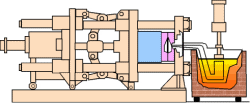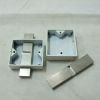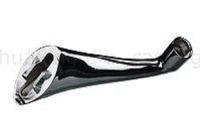Zinc die casting has long been revered for its ability to produce intricate, high-quality components with remarkable efficiency. At the heart of this manufacturing prowess lies a sophisticated yet often overlooked aspect: zinc die casting tooling. In this article, we delve into the intricate world of zinc die casting tooling, exploring its critical role, key components, design considerations, and the advancements shaping its future. Mastering Precision and Efficiency: The Art of Zinc Die Casting Tooling
Zinc die casting tooling serves as the backbone of the entire manufacturing process, dictating the precision, quality, and efficiency of produced components. Its significance cannot be overstated, as it directly impacts crucial factors such as dimensional accuracy, surface finish, and production cycle times. A well-designed and meticulously crafted set of tooling can unlock the full potential of zinc die casting, enabling manufacturers to meet the demands of today’s competitive markets.
Die Casting Mold: The cornerstone of zinc die casting tooling, the mold (or die) is crafted from high-grade steel and comprises two halves: the cover die and the ejector die. These halves form the mold cavity where molten zinc is injected under high pressure to create the desired component shape.
Core Pins and Slides: These movable components within the die allow for the creation of complex features such as undercuts and holes in the final part. Core pins and slides are essential for expanding the design possibilities of zinc die casting.
Sprue and Runner System: Responsible for delivering molten metal from the furnace to the mold cavity, the sprue and runner system must be meticulously designed to ensure efficient filling and uniform distribution of the molten zinc.
Cooling Channels: Proper cooling is critical for controlling the solidification process and minimizing cycle times. Cooling channels integrated into the die help regulate the temperature of the molten metal and the resulting casting, ensuring optimal part quality.
Ejection System: Once the casting solidifies, it needs to be ejected from the mold cavity. The ejection system, comprising ejector pins, plates, or other mechanisms, facilitates the smooth removal of the casting without causing damage.
Venting System: To prevent defects such as porosity and ensure the integrity of the final part, venting channels or vents are incorporated into the die to allow gases to escape during the casting process.
Designing zinc die casting tooling requires a deep understanding of metallurgy, thermodynamics, and manufacturing processes. Advanced technologies such as computer-aided design (CAD), computer-aided manufacturing (CAM), and simulation software have revolutionized the tooling design process, enabling engineers to optimize designs for performance, efficiency, and cost-effectiveness.
Innovations in materials, coatings, and manufacturing techniques continue to push the boundaries of what is achievable with zinc die casting tooling. For example, the use of advanced tool steels and surface treatments enhances durability and wear resistance, extending the lifespan of tooling and reducing maintenance requirements.
Zinc die casting tooling represents the marriage of art and science in modern manufacturing. Its intricate design, precision craftsmanship, and technological advancements are essential drivers of efficiency, quality, and innovation in the production of zinc die cast components. As the industry evolves and demands for more complex and high-performance parts increase, the role of zinc die casting tooling will continue to be pivotal in shaping the future of manufacturing.
Zinc Die Casting Company makes metal parts for several industries. To get metal parts prices or prices for zinc die castings, or Email us at Sales@DieCastingZinc.com for die casting part prices or Zinc Die Casting Tooling Prices.
Permalink: https://www.diecastingzinc.com/zinc/precision-zinc-die-casting-tooling/





